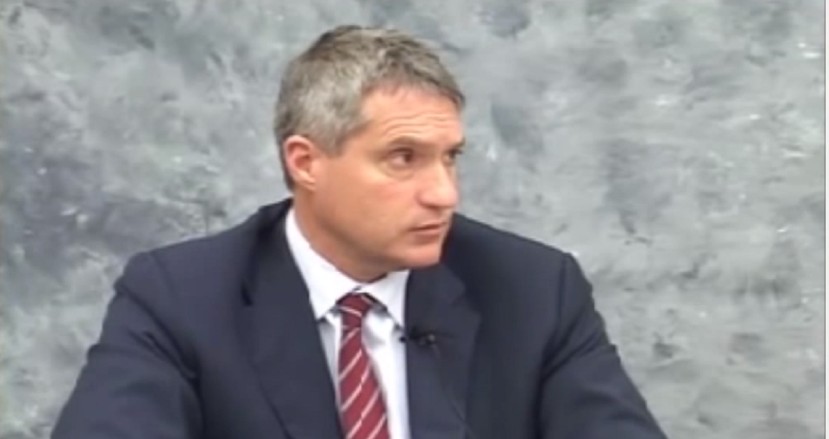
Forbes 31/08/2021

Readers of this column know well the story of disbarred, Harvard-educated attorney Steven Donziger. Donziger now faces sentencing for criminal contempt of court for his disobedience of multiple orders in the civil case of Chevron Corp. CVX -1.6% v. Donziger et al., 11 Civ. 691 (S.D.N.Y.) (2019). That case was perhaps the heaviest nail in the coffin of Donziger’s attempt to extract millions from Chevron Corp., following a fraudulent Ecuadorean court decision against the oil giant.
United States District Judge Kaplan, who presided over the 2019 case, had charged Donziger with six counts of criminal contempt, in violation of 18 U.S.C. § 401(3), arising from his refusal to comply with three court orders in that case. The judge alleged that Donziger: 1) disobeyed a directive to provide, by the specified deadline of March 8, 2019, a sworn list of all his electronic devices, communication and messaging accounts; 2) that he failed to surrender these devices; 3) that he failed to surrender every passport issued to him by any country; 4) that he violated paragraph one of the RICO Judgment Protocol rendered against him by Judge Kaplan by refusing to assign to Chevron his contractual rights to fees due him under two retainers negotiated with Ecuadorean clients; and 5) that violated paragraph five of the RICO Judgment Protocol by continuing to assign and pledge future contingent fees in the fradulently obtained Ecuadorian Judgment in exchange for personal services rendered him.
A bench trial (before a judge and no jury) of these criminal contempt charges was held from May 10 – 17, 2021. The Special Prosecutor elicited testimony from seven witnesses, and more than 160 exhibits were received into evidence. Donziger did not call a single witness and elected not to testify in his own defense. Following the trial, the Court found Donziger guilty of all six counts of criminal contempt in an exhaustive 245-page decision. He will likely be sentenced in September. He now has a criminal record, and he is subject to six months’ imprisonment or a $5000 fine — and of course he has already been disbarred and may no longer practice law.
Steven Donziger had one Hail Mary pass left open to him, and he threw it. He moved for a new contempt trial, arguing that the special prosecutor who had been appointed to handle the the charge against him (the federal Department of Justice had informed Judge Kaplan that it lacked resources to handle the case) was unconstitutional, relying heavily on United States v. Arthrex, Inc., 141 S. Ct. 1970 (2021). Essentially, Donziger’s argument is that the special prosecutor was an executive officer not subject to the supervision and control of the leader of the executive branch (the President) and his Attorney General.
On August 21, 2021, United States District Judge Loretta Preska forcefully knocked down that Hail Mary Pass. As she pointed out in her thorough and respectfully written decision, the Attorney General clearly possessed the discretion to supervise and control Donziger’s special prosecutor. The fact that he had chosen not to exercise that control was of course irrelevant — he clearly had found nothing to object to in the special prosecutor’s handling of the case. Indeed, in May 2021 then-Acting Deputy Attorney General John P. Carlin actually indicated this in a letter to Donziger’s representative. And of course the actual decision in the contempt case was to be rendered by Judge Preska, a duly confirmed member of the judicial branch, not the executive branch, rendering the Arthrex argument superfluous.
Donziger’s constitutional argument was as weak as a Hail Mary pass that floats into the stands.
What sentence will he receive? It matters not, at least not much. During his lengthy trial (made lengthy in no small part because of Donziger’s attorneys’ dilatory tactics) Donziger has admittedly already spent a long time in home detention to address the flight risk the court found he posed. But home detention is not imprisonment, and Donziger has been permitted to leave his home for multiple reasons (family obligations, employment, attorney visits, religious services, and medical appointments).
Hopefully these words from the special prosecutor may weigh on Judge Preska’s mind as she considers whether to impose any custodial sentence:
“Mr. Donziger repeatedly and willfully disregarded court orders over the course of years. Mr. Donziger’s disobedience was deliberate and repeated. He has expressed no remorse for his conduct. To this day, Mr. Donziger has not produced documents he was ordered to produce ... and withheld on rejected First Amendment grounds. Mr. Donziger still has not complied with Paragraph Five of the Protocol. The Court should take these facts into account in imposing sentence. The Court should also consider a sentence to deter those who would seek to undermine the rule of law in this way in the future, as well as to promote respect for the law and the principle that court orders cannot be broken with impunity.”
Amen.
Notas relacionadas